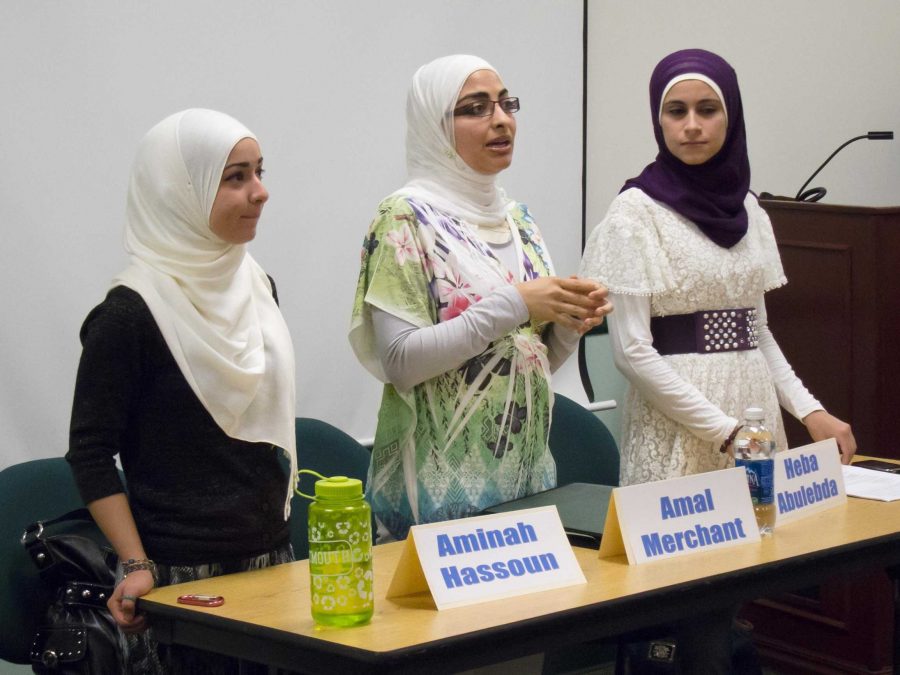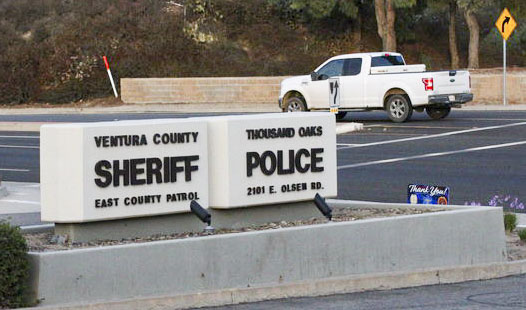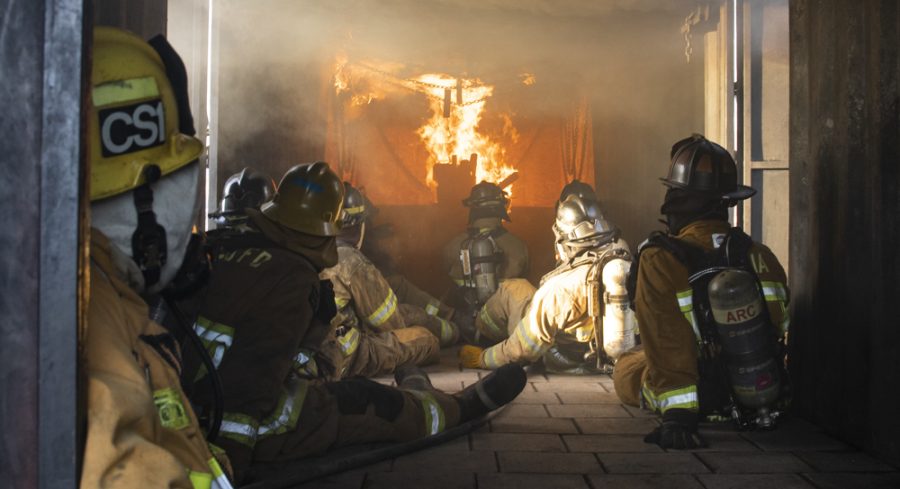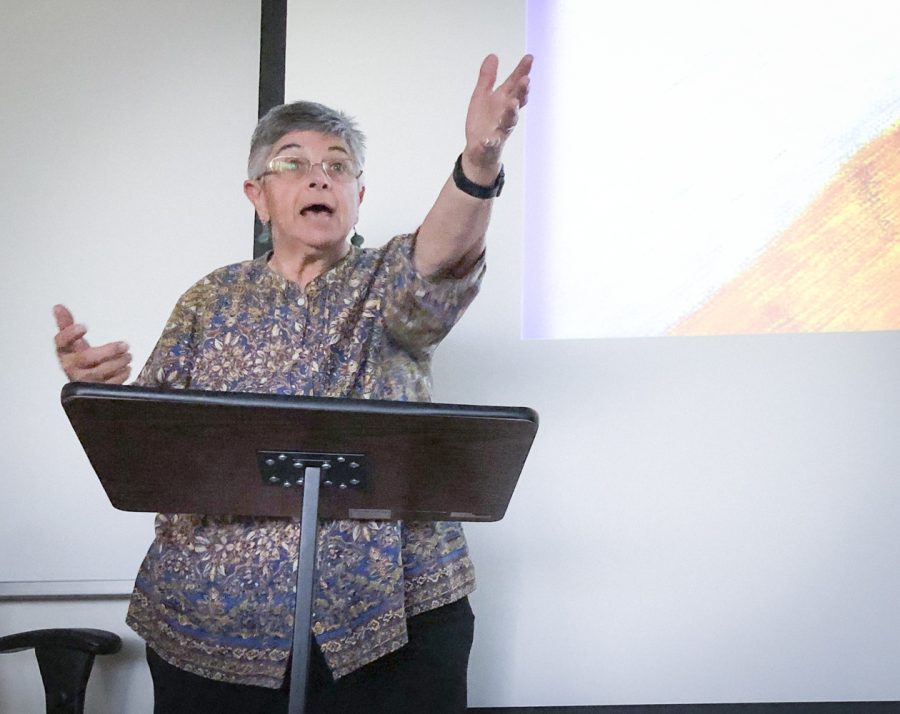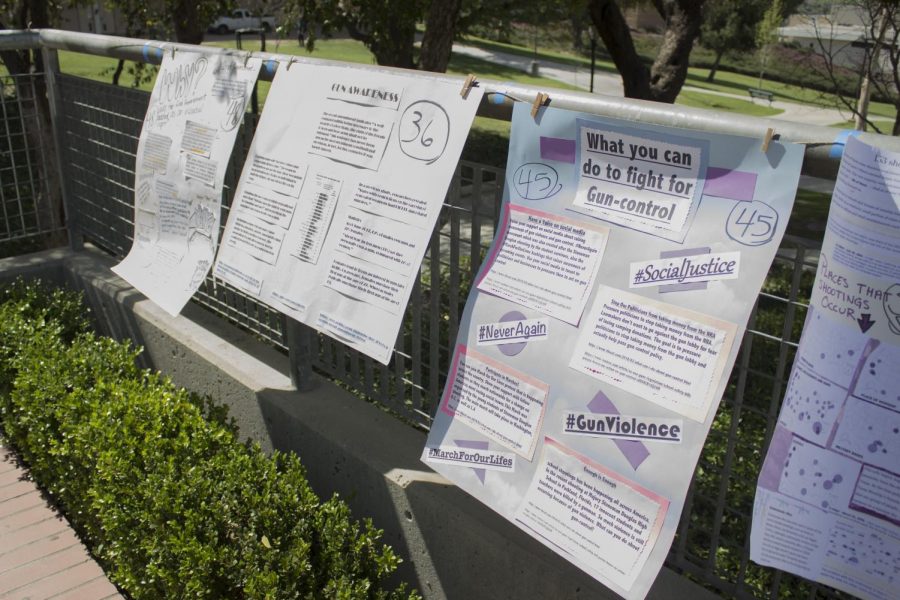A panel discussion with three female Muslim students held on Sept. 13 at Moorpark College gave insight into different aspects of the Islam and difficulties they face in the US.
This was the second event in the The Year of Conflict Transformation at Moorpark College, which is an annual series of events, include speakers and discussions dedicated to the 10th anniversary of 9/11.
One of the speakers, Amal Merchant, a 29-year-old graduate of California State University Northridge, spoke about the perceptions of Muslims.
“Since 9/11, Islam is the culture of fear, and as Muslims we are the target of crimes because of this fear,” said Merchant.
A report by the Abu Dhabi Gallup Center states that Muslim Americans, even a decade after 9/11, are still confronted with public distrust and are more skeptical of law enforcement than other US faith communities. The Year of Conflict Transformation aims to bring to light different ways on how to deal with conflicts in a peaceful and productive manner, which can occur on a global level, but also between individuals.
Cynthia Barnett, a Sociology teacher at Moorpark College, hosted the discussion with the Muslim student panel.
“Conflict is something that we encounter in our personal lives,” said Barnett. “It is something that is problematic, but often times leads to positive outcome.”
To diminish possible misperceptions about Islam, the three women discussed different aspects of the religion with the audience. It was mentioned, for example, that other religions such as Christianity and Judaism are included and have much to do with the Islamic faith.
A further issue discussed was the role of gender. The speakers clarified that the perception that only women have certain religious restrictions is wrong. Muslim women are required to cover their hair and neck in public since the time they enter puberty. Men, on the other hand, are not allowed to wear gold.
Heba Abulebda, a 19-year-old Engineering major from Moorpark College, moved to the US in 2007 with her family from Palestine, due to the political situation in the state and because there were better opportunities for education in the US.
“Women are just as respected as men in Islam,” said Abulebda.
“Under god we are created equally,” added Merchant.
The third speaker, Aminah Hassoun, a 21-year-old Cal Luthern graduate and religion and political science major, was also born and raised in the US. She started wearing the covering, which is called hijab, when she was 11 years old.
“This is the way I chose to dress,” said Hassoun. “I want people to notice me. It is important for Muslim women to wear the covering.”
“It is to honor yourself and the beauty for your husband,” Abulebda added.
Lynn Nguyen, a chemistry major at Moorpark College, expressed her opinion about Muslim women wearing the hijab.
“I don’t really think anything about it, I accept it,” said Nguyen.
Muslims pray five times a day, but the women mentioned that it could be sometimes difficult to find an appropriate place for it.
“It is hard to pray regularly in public,” said Hassoun.
“I like to practice with some dignity. I personally don’t pray on campus,” Abulebda added.
Referring to the topic of conflict transformation, Hassoun mentioned the word islah, which can be translated into reconstitution. This is seen as Muslims’ tradition for conflict solving. According to islah, they serve as mediators between two people. Conflict is solved “through individuals, through groups,” Merchant said.
Ten years after 9/11, Muslims still have to deal with misperceptions of their religion, but the three women agreed that it is important to have discussions like the one held on Sept. 13 in order to reduce conflict. This is in line with the aim of the Year of Conflict Transformation, which is to raise awareness of certain issues and to encourage students to think in a critical way.

